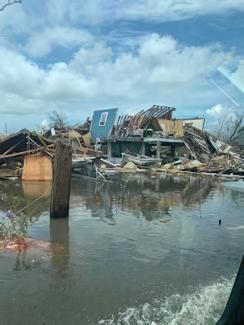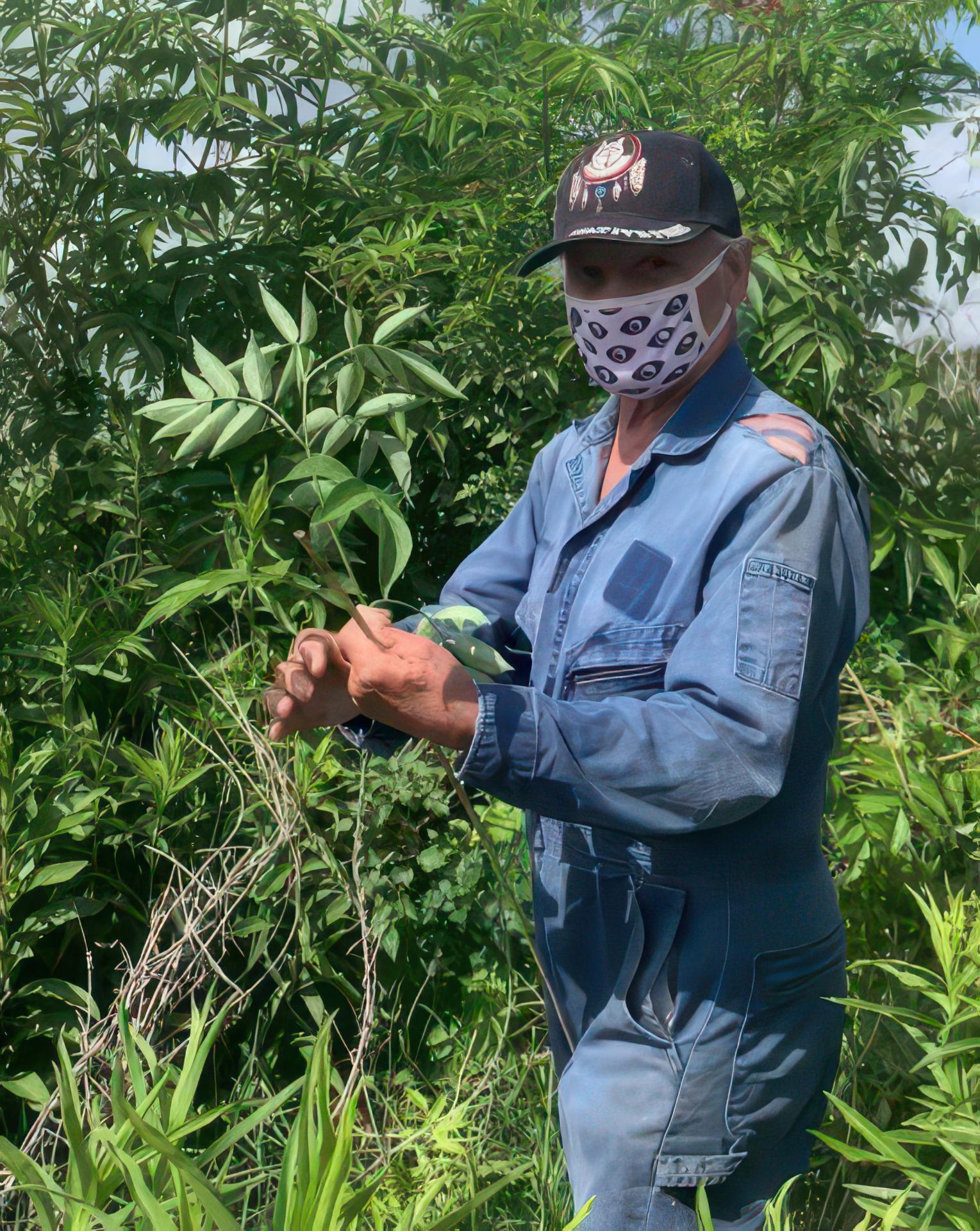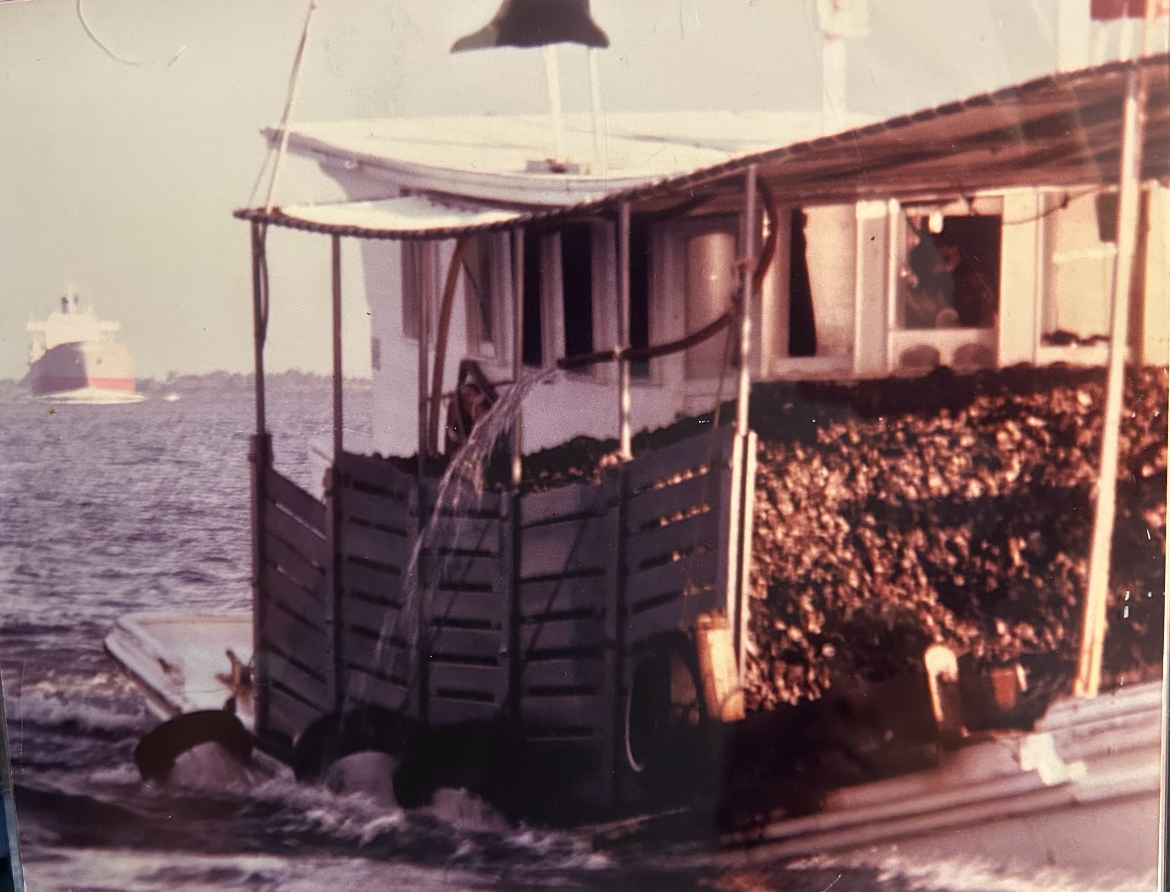
Our Tribe, the United Houma Nation, is a state-recognized Tribal Nation located along the Louisiana Gulf Coast with a population of approximately 17,000 citizens. While a significant portion of our Peoples still reside in southern Louisiana, an increasing number have been forced to relocate to higher ground—some moving a few hours north, others leaving the state altogether. The forces behind this migration are complex, but the result is undeniable: the fragmentation and destruction of our community.
Make no mistake, our Peoples are not being merely displaced; they are being exiled. When faced with the impossible choice of leaving or staying to endure skyhigh flood insurance rates, constant destruction and flooding, and the ever-present threat of oil spills and environmental hazards—can we truly call that a choice? This unrelenting cycle is creating an unwilling class of so-called “climate refugees” or “climate-displaced persons,” essentially Houma people driven from their homes by the combined weight of historical injustices and ongoing economic and social inequality. Principle 9 of the United Nations High Commissioner for Refugees’ Guiding Principles on Internal Displacement affirms that “States have a particular obligation to protect against the displacement of [Indigenous Peoples]... and other groups with a special dependency on and attachment to their lands.” Yet, ironically, it is the state itself that has played a complicit role in driving our exile.
Blaming climate change alone oversimplifies the deep, multi-faceted reality faced by the Houma Peoples, a reality shaped by generations of discrimination, exclusion, disenfranchisement, and purposeful erasure. Houma people are on the margins not by choice, but as the result of intentional, systematic efforts by those in power to marginalize and disempower our community. Our traditional lands are not just passively washing away. They are being actively and deliberately rendered uninhabitable by a series of man-made decisions. Government actions that prioritize protecting some communities while neglecting others in the face of rising sea levels are no mere oversight. The subsidence we are facing is not a random occurrence; it is the direct consequence of the extractive industries’ unchecked exploitation of our land and their reckless destruction of coastal buffers, estuaries, and wetlands that once shielded us from flooding. Let there be no doubt: this has been a deliberate and devastating assault on our way of life, not a mere accident.

The authors’ uncle, Peter Verdin, harvesting elderberries in Dulac, Louisiana on the bayou side. Elderberry blossoms are gathered for medicinal use by the Houma. Photo by Rochelle Morgan-Verdin.
Our Peoples have resisted these realities at every turn, yet the federal government’s refusal to recognize the United Houma Nation is an injustice beyond comprehension, rendering us powerless to protect our ancestral homelands and people from these destructive forces. At best, we are mere witnesses to our own ecocide. At worst, we are left with no choice but to be complicit, trapped by the dearth of economic opportunities in a region essentially governed by the fossil fuel industry.
Assessing the extent of the damage and the grip these industries hold on our institutions is deeply disheartening. It forces us to ask where this leaves the next generation of Houma citizens, many of whom are now part of a growing diaspora. As we look to the future, how can we rebuild the same sense of connection to identity, place, and community that our parents and their ancestors once had? What does this mean for the next seven generations? Will we ever truly find our way back home again?
For our family, the idea of home has always been tied to stories our father shared with us—stories that, to us, felt almost like fairy tales. He spoke of a time when he was surrounded by a close-knit community of Indian people, a community that gave him love, support, and a profound sense of belonging to something greater than himself. This love shielded and strengthened him in the face of incredible adversity, poverty, and segregation. For our dad, home meant never facing the world alone—it was a place where he was always anchored, a place he could always return to.
Sadly, as more and more of our friends and relatives are forced to migrate, we realize our dad’s experience of home is one we will never fully know. In the aftermath of so many disasters, both climate-induced and human-made, our community has become unrecognizable, physically and spiritually. Many of the climate-related disasters our community faces, such as rising sea levels, extreme weather events, and coastal erosion, are not purely natural phenomena but are also the result of human activities. These activities have accelerated climate change, amplifying the frequency and intensity of environmental disasters. Colonization takes many forms, and in its latest iteration, it is not only taking our land, but also actively eroding any remaining sense of tcukka (home) by forcibly displacing our Peoples.

The authors’ father, Ricky James Verdin, worked on the Young Danny with his uncles, harvesting oysters and transporting them across the Mississippi River for canning. Photo by Rick James Verdin.
As new generations navigate this changing landscape, young Houma people have begun to reclaim and reconstruct our traditional language, Uma’. This effort is part of a broader wave of cultural revitalization led by the next generation, one that is unapologetically Indigenous and resolutely committed to ensuring that future generations never endure the pain we have felt watching our community unravel. Reconstructing Uma’ is an important step on the pathway home.
One might ask, what is the purpose of reconstructing a language shaped in the wetlands and bayous of southern Louisiana if future generations, forced to migrate northward, will grow up in prairies and forests? What will pena, the Uma’ word for pirogue, mean to a five-year-old building a fort in the forests around Alexandria? What significance will sãkulu’, the Uma’ word for cypress, or saktce, the Uma’ word for crawfish, have for a young adult living in San Francisco?
How can we preserve the meaning of a language when the context that gave those words life no longer exists? These questions may not have clear answers. One thing, however, is certain: by learning Uma’, a new generation of Houma People will reconnect with themselves, their ancestors, and the broader Houma community—wherever they may reside. Through Uma’, we will rediscover a way of understanding and relating to nature, not as something separate from ourselves, but as an inseparable part of who we are as the Saktce’ Ho’ma (Crawfish People). In reclaiming our language, we reclaim our place in the world—our history, our identity, and our future. This is the first step on our journey back home.
Rochelle Morgan-Verdin and Jecee Morgan-Verdin are proudly-enrolled citizens of the United Houma Nation. Rochelle holds a master’s degree in International Law and Human Rights and a bachelor’s in Latin American and Caribbean Studies. Jecee holds a bachelor’s degree in Biological Sciences and a master’s degree in Preclinical Sciences.
Top photo: Homes in Terrebonne Parish destroyed by Hurricane Ida in 2021. Photo by Jecee Morgan-Verdin.
